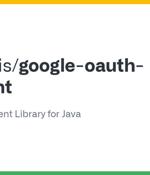Security News

Boffins at universities in France, Germany, Luxembourg, and Sweden took a deep dive into known Java deserialization vulnerabilities, and have now resurfaced with their findings. Log4Shell, the remote code execution flaw affecting the Apache Log4j logging library was made possible by Java deserialization.

In this Help Net Security video, Erik Costlow, Senior Director of Product Management at Azul, talks about Java centric vulnerabilities and the headache they have become for developers everywhere. He touches on the need for putting security back into DevOps and how developers can better navigate vulnerabilities that are taking up all of their efforts and keeping them from being able to focus on the task at hand.
![S3 Ep91: CodeRed, OpenSSL, Java bugs, Office macros [Audio + Text]](/static/build/img/news/s3-ep91-codered-openssl-java-bugs-office-macros-audio-text-small.jpg)
DOUG. A brief history of Office macros, a Log4Shell style bug, two OpenSSL crypto bugs, and more. DUCK. If you have a Windows network where you can use Group Policy, for example, then as an administrator you can turn this function on to say, "As a company, we just don't want macros off the internet. We're not going to even offer you a button that you can say, Why not? Why not let the macros run?".

Google last month addressed a high-severity flaw in its OAuth client library for Java that could be abused by a malicious actor with a compromised token to deploy arbitrary payloads. Tracked as CVE-2021-22573, the vulnerability is rated 8.7 out of 10 for severity and relates to an authentication bypass in the library that stems from an improper verification of the cryptographic signature.

Four months after the discovery of the zero-day Log4Shell critical flaw, millions of Java applications still remain vulnerable to compromise, researchers have found. Researchers did a search on the Shodan search engine to see how many apps vulnerable to Log4Shell are exposed to the internet.

A proof-of-concept code demonstrating a newly disclosed digital signature bypass vulnerability in Java has been shared online. The high-severity flaw in question, CVE-2022-21449, impacts the following version of Java SE and Oracle GraalVM Enterprise Edition -.

The vulnerability, which Oracle patched on Tuesday, affects the company's implementation of the Elliptic Curve Digital Signature Algorithm in Java versions 15 and above. ECDSA is an algorithm that uses the principles of elliptic curve cryptography to authenticate messages digitally.

Java versions 15 to 18 contain a flaw in its ECDSA signature validation that makes it trivial for miscreants to digitally sign files and other data as if they were legit organizations. Java 15-18 ECDSA doesn't sanity check that the random x coordinate and signature proof are nonzero; a signature validates any message.

We're focusing on just one of those Java bugs, officially known as CVE-2022-21449, but jokingly dubbed the Psychic Signatures in Java bug by researcher Neil Madden, who uncovered it and disclosed it responsibly to Oracle in November 2021. According to Madden, these vital preliminary checks were accidentally omitted back in the era of Java 15, when the C++ cryptographic code in the official Java runtime was rewritten in Java itself.

As with most technical skills, the best way to learn Java is through building your own projects. The Complete 2022 Java Coder Bundle provides plenty of that - nine full-length video courses, in fact.